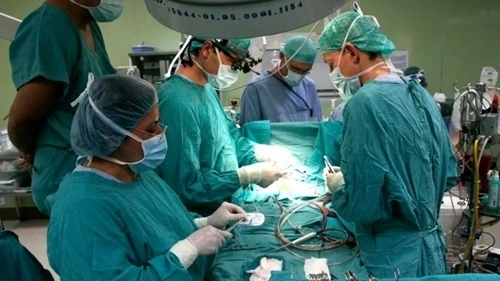No, the sale of kidneys or any other human organs is illegal in India. The Transplantation of Human Organs and Tissues Act, 1994 (THOTA) strictly prohibits the commercial sale of human organs, including kidneys. However, organ donation is allowed under specific circumstances, governed by stringent regulations to prevent exploitation and trafficking.
Legal Framework Governing Kidney Sale and Donation in India

The sale of kidneys is considered a criminal offense in India, but organ donation is permissible under the conditions outlined in THOTA. Here’s an in-depth look at the law and its provisions:
1. Transplantation of Human Organs and Tissues Act, 1994 (THOTA)
- Prohibition of Commercial Organ Trade:
- THOTA explicitly bans the buying and selling of organs.
- Violation of this law attracts severe penalties, including imprisonment and hefty fines.
- Permissible Organ Donation:
- Living Donation:
- A kidney can be donated by a living donor to their near relative, including:
- Spouse
- Parents
- Children
- Siblings
- Grandparents
- Grandchildren
- Donation by non-relatives requires approval from the Authorization Committee to ensure it is altruistic and not commercial.
- A kidney can be donated by a living donor to their near relative, including:
- Deceased Donation:
- Kidneys can also be donated after death, provided the deceased has given prior consent or the family consents posthumously.
- Living Donation:
- Authorization Committees:
- Committees at the state or hospital level are responsible for scrutinizing and approving organ donations, especially from non-relatives.
2. Penalties for Selling Kidneys
Under THOTA, individuals involved in the commercial sale of kidneys face:
- Imprisonment:
- Up to 5 years for the first offense.
- Up to 10 years for subsequent offenses.
- Fines:
- Up to ₹20 lakh for each offense.
Why Kidney Sale is Prohibited in India
- Preventing Exploitation:
- The prohibition is aimed at protecting economically disadvantaged individuals who may be coerced or exploited into selling their organs.
- Ethical Concerns:
- Commercial organ trade raises significant ethical questions, undermining the dignity of human life.
- Combating Organ Trafficking:
- Banning kidney sales helps prevent the rise of illegal organ trafficking networks.
Legal Ways to Donate a Kidney in India
- Living Donor:
- Must be a near relative or obtain Authorization Committee approval if not a relative.
- Deceased Donor:
- Individuals can pledge their organs during their lifetime, or their family can authorize organ donation after death.
- Transplantation Process:
- Hospitals performing kidney transplants must be registered and adhere to strict guidelines under THOTA.
Challenges and Issues
- Illegal Organ Trade:
- Despite the ban, black market organ trade continues to be a challenge in India, with cases of trafficking and exploitation being reported.
- Shortage of Donors:
- India faces a significant shortage of legal kidney donors, leading to long waiting lists for patients in need of transplants.
- Awareness and Consent:
- Lack of awareness about organ donation and cultural hesitations often hinder the growth of legal organ donations.
Recent Developments and Measures
- Stricter Enforcement:
- Authorities have intensified crackdowns on illegal organ trade networks.
- National Organ and Tissue Transplant Organization (NOTTO):
- The government has established NOTTO to promote deceased organ donation and ensure transparent allocation of organs.
- Awareness Campaigns:
- Public awareness programs are being conducted to encourage altruistic organ donation and reduce the stigma around it.
Conclusion
The sale of kidneys is illegal in India, as it violates the principles of ethics, human dignity, and law under the Transplantation of Human Organs and Tissues Act, 1994. While organ donation is encouraged and regulated, any commercial activity related to organs is punishable by law. Promoting awareness about legal donation channels and addressing the shortage of organ donors are critical to reducing illegal practices and ensuring equitable access to transplants.
Hina Abbasi is Editor and a passionate sports and entertainment content writer at WinnersMaze.com. Hina’s expertise spans across a wide range of sports, and interest in many TV shows allowing her to deliver insightful analysis and compelling stories that resonate with readers.

